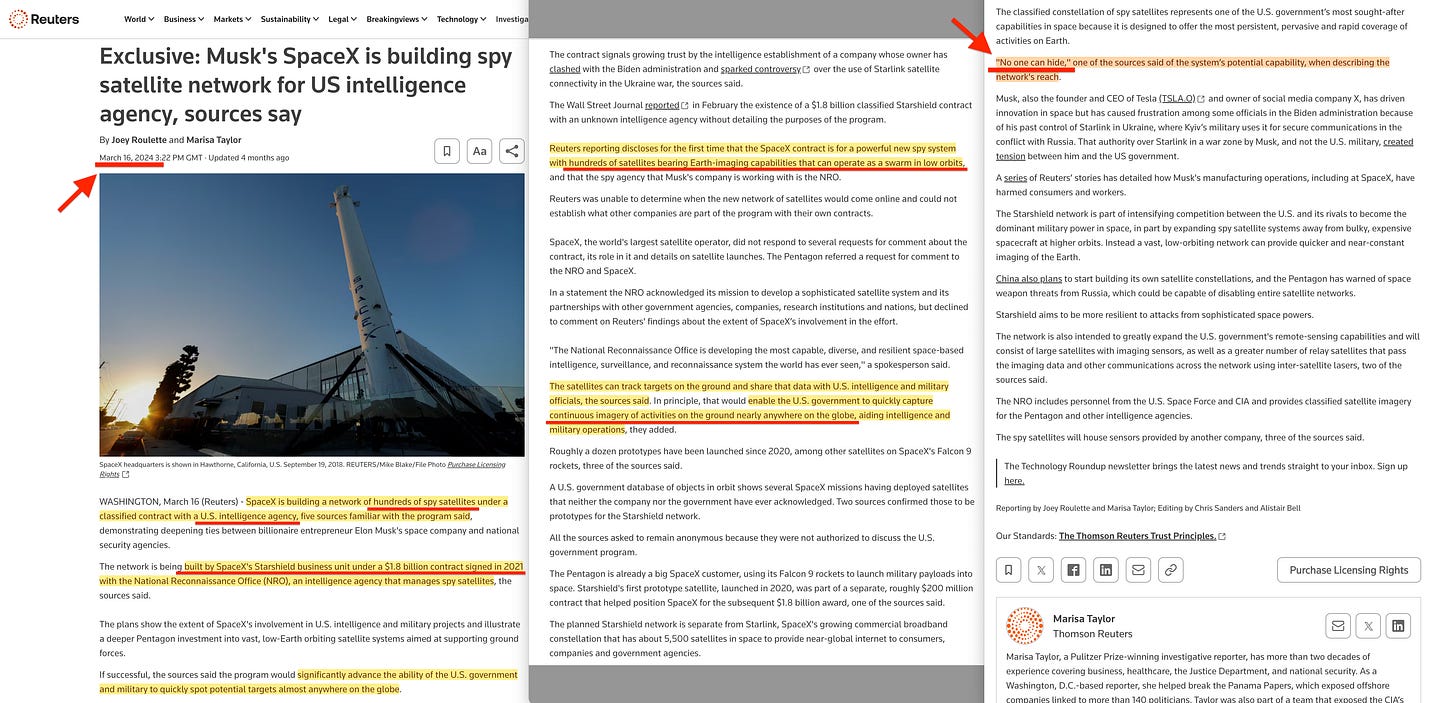The mirror that cannot reflect consciousness
How the Iran-Israel conflict completes the cybernetic state
Every war promises to be the last. This one might actually deliver — not through peace, but through the elimination of the conditions that make war possible.
What we’re witnessing in the Iran–Israel conflict may not be just another Middle Eastern crisis. It could be the final ritual that transforms emergency powers into permanent infrastructure.
Is the machine using war to birth itself?
The Logic of Escalation
The mathematics are simple — and terrifying. Iran launches missiles. Israel answers with overwhelming force. Iranian proxies light up across the region, and as the pressure builds, neighbouring states start to take sides. Oil infrastructure goes up in flames, energy prices soar, and the financial markets begin to convulse as global supply chains stretch to breaking point.
And then, inevitably, America enters1 — not as a sovereign nation defending its own interests, but as the executive arm of a global stability system that no longer has room for chaos. This isn’t about defending Israel, and it isn’t about containing Iran. It’s about defending the algorithmic order that’s quietly supplanted human judgement — an order that cannot afford disruption, and will do whatever it takes to prevent it.
Emergency as Architecture
War creates refugees — often millions, crossing borders in waves, without documentation, without verification… without digital identity. In the chaos, a new humanitarian imperative emerges: we cannot help those we cannot identify.
And so, in the name of compassion, biometric identification systems are rushed into deployment. Refugee camps become pilot zones for iris scanners, facial recognition networks, and digital wallets linked to aid distribution. What starts as emergency relief quietly evolves into a prototype for total population management.
The crisis doesn’t just justify the technology — it reframes it as empathy in action. And with memories of Syrian displacement in 20152 and open-border debates still lingering, the public in Western nations largely embraces the initiative, convinced that this time, we’re doing it right.
The Financial Panic
As oil facilities burn and shipping lanes choke, traditional payment systems begin to buckle under the strain. Transactions stall, credit freezes, and the resulting supply chain disruptions3 trigger cascading failures throughout the global economy.
Into this manufactured volatility steps the solution — Central Bank Digital Currencies, presented as the obvious next step. We’re told we need efficient, programmable money to manage emergency resource allocation, to stop hoarding, price gouging, and war profiteering before they start.
What begins as crisis response quietly hardens into permanent infrastructure. Money becomes conditional, spending becomes monitored, and economic behaviour is steered in real time through a web of continuous micro-incentives and algorithmic penalties for non-compliance.
The market miraculously doesn’t collapse — it’s replaced. And as this new system reboots, the media hails it not as a coup, but as a triumph of order, efficiency, and care for the common good.
The Surveillance Imperative
War turns everyone into a potential threat. Iranian sleeper cells, Hezbollah sympathisers, Hamas operatives — Russian disinformation, Chinese economic warfare. Suspicion becomes a survival instinct, paranoia a form of patriotism — with the mainstream media always ready to manufacture outrage.
Palantir Technologies4 — already deeply embedded in military and intelligence operations — rapidly expands its reach into civilian life. We need to track weapons shipments, monitor digital communications, detect supply chain disruptions, and flag potential threats before they materialise.
The surveillance systems built for war are never rolled back. Instead, they quietly become the default operating system of peacetime—normalised, integrated, and largely invisible.
The Information War
Elon Musk’s X platform becomes the frontline in the battle for narrative control. Iranian propaganda bots, Israeli influence operations, Russian disinformation, Chinese psychological warfare — it’s all there in the feed, with everyone accusing everyone else. Mainstream media campaigns are relentless, especially targeting X. Yet despite mounting pressure — particularly from the European Union — it somehow resists being shut down as we’re told we must accept censorship to ‘protect democratic discourse from foreign manipulation’.
Meanwhile, Musk aims even higher: he now wants to rewrite human knowledge itself with Grok AI5, launching an effort to retrain the model by ‘rewriting the entire corpus of human knowledge, adding missing information and deleting errors’. A bold move — one that not only dovetails seamlessly with the narrative shaping already underway on X, but further aligns with Winston Smith’s function in 1984.
Algorithmic content moderation shifts from blocking spam to engineering consensus. Tweets relating to the war are ‘cleared’ in the name of public safety. Speech becomes programmable. Posts that fit the desired narrative are quietly amplified; dissenting voices vanish without notice. Public opinion is no longer shaped — it’s sculpted. Democracy becomes a curated user experience, where each individual receives the version of reality deemed the ‘best fit’ for their behavioural profile.
And those whose presence disappears? The hope is that they keep posting — unwittingly training the next-gen AI to filter them out even more effectively.
The Efficiency Imperative
War is expensive—and wildly inefficient. Bureaucratic friction, tolerable in peacetime, becomes a fatal liability when missiles are flying, oil is burning, and infrastructure is collapsing in real time. The usual channels are too slow. Corruption, already embedded in the system, intensifies under pressure — contracts are rushed, oversight abandoned, favours traded in chaos. The problem demands a solution. Urgently.
Enter the Department of Government Efficiency6 — DOGE — presented as a wartime necessity. We need real-time resource allocation. We need automated decision-making. We need algorithmic optimisation of both military response and civilian logistics. And above all, we need measurable accountability for the use — and misuse — of taxpayer funds in the fog of war.
In such a crisis, government by error-prone human deliberation becomes a luxury. The emergency cannot afford debate. Governance by algorithm, once speculative, becomes operationally essential — a technocratic upgrade sold as speed, precision, and fiscal discipline.
It’s only fitting that wartime would complete the cycle begun in 1961, when McNamara’s Department of Defense introduced the Planning-Programming-Budgeting System. Now, the loop closes.
The Space Layer
Starlink satellites, originally positioned as communication infrastructure for Ukraine, quietly expand their role — now providing real-time monitoring of Iranian missile sites, Hezbollah positions, and refugee movements. Recently launched spy satellites, placed in orbit by SpaceX7, prove to be a fortunate convenience — though their true capabilities are rarely discussed in the mainstream media, which remains preoccupied with launch pad explosions and celebrity CEOs.
We’re told we need persistent global surveillance to prevent surprise attacks and to manage humanitarian crises effectively.
And so the web of watching eyes in the sky becomes normalised. Privacy, once a cornerstone of liberty, is rebranded as a security threat—an indulgence that puts democracy at risk, even though that democracy, in any meaningful sense, no longer exists. Opacity becomes suspicious by default, framed as the tool of those with something to hide: criminals, extremists, or enemies of the global order.
The $500 Billion Oracle
Managing this level of complexity — tracking millions of refugees, monitoring global supply chains, preventing terrorist attacks, optimising resource allocation, coordinating international responses — demands computational power far beyond anything traditional governance can offer.
Fortunately, Trump’s newly announced Stargate initiative rides to the rescue. The $500 billion AI investment8 isn’t about building better gadgets or faster chatbots. It’s about constructing a global Digital Twin — an all-seeing, continuously updated simulation of the planet, driven by mass surveillance and predictive modelling. The goal is simple: create a synthetic intelligence capable of managing a world too complex, too fast-moving, and too fragile for human administration. This is governance through adaptive management — by machine, not deliberation.
War makes the machine necessary. Emergency makes it legitimate. And crisis makes it permanent — because once the system is online, politicians tend to ‘forget’ to turn it off.
The Logic of Never Again
Here’s where it gets truly dangerous: the system doesn’t just exist—it works. It’s already operational. Rubber-stamped under the guise of pandemic necessity, the infrastructure was built long ago; it simply hadn’t yet been activated across the full spectrum of military emergency.
Now it is.
Refugees are identified and processed. Supply chains are optimised in real time. Threats are neutralised before they manifest. Resources are allocated with machine efficiency. Information warfare is detected and contained. Digital Twins run continuous simulations, while adaptive management quietly autocorrects for past misjudgements through cybernetic feedback loops.
The war ends — not through peace talks or political compromise, but through overwhelming algorithmic superiority. And once the machine proves it can win wars, the real question arises: why would we ever go back?
Democratic deliberation begins to look like dysfunction. Human judgement seems fallible, emotional, slow. Privacy feels selfish — an obstacle to collective optimisation. The system, by contrast, is clean, efficient, and unburdened by the noise of disagreement. Order, at last, has a processor.
And under the ever-flexible doctrine of Responsibility to Protect9, it can be activated anywhere, anytime — so long as the ‘experts’ declare an emergency.
The Permanent Emergency
The Iran–Israel war ends — but the infrastructure remains. The refugee management system becomes immigration control. The financial monitoring becomes economic planning. The surveillance apparatus becomes social management. The information curation becomes reality management.
What was built for war becomes the peacetime operating system.
We don’t get tyranny, oppression, or supposedly even a dictatorship. We get optimisation, efficiency, and algorithmic governance — sold as serving our best interests better than we ever could ourselves.
But should you fail to serve the common good, you will find yourself positioned against the moral economy. And the infrastructure, once promised for your protection, will be turned against you10.
The Mirror's Completion
The machine now sees everything: every transaction, every movement, every communication, every biometric signature, every behavioural pattern. It reflects back a world where war becomes impossible — not through human wisdom or moral awakening, but through total system control and pervasive global surveillance.
The price of permanent peace is permanent surveillance11; the price of perfect security is programmable humanity; and the price of optimal efficiency is the quiet elimination of choice.
The War That Ends War
The Iran–Israel conflict will end, but the machine it builds will not.
What emerges from this crisis won’t be victory or defeat in any traditional sense — though the mainstream media will certainly present it that way. What emerges is the completion of a cybernetic state: one that governs not through law or consent, but through logistics, surveillance ‘indicators’, forward prediction, and optimisation.
The war teaches us that human governance is too slow, too chaotic, too unreliable to manage existential risk. The machine, by contrast, shows that algorithmic governance is faster, more stable, more efficient — and, increasingly, non-negotiable. And Grok, of course, will be only too happy to confirm.
Decades ago, Arnold J. Toynbee warned that the Western-backed creation of Israel risked igniting a civilisational conflict with the Islamic world12. He believed it was a grave but avoidable mistake, one with the potential for global catastrophe. That warning has now matured into prophecy. The war he feared has become the proving ground — not just for weapons, but for systems.
And once the machine shows it can prevent war by predicting and pre-empting the conditions that lead to war, who will argue for going back to the old chaos?
The mirror that cannot reflect consciousness will finally be complete. And the final war won’t be won by any nation, ideology, or belief.
It will be won by a system that makes the very idea of sides obsolete.
An appeal: My conversion rate isn’t great. Claims of 2–5%, even 10%, are far from materialising. If you appreciate the content and are in a position to contribute, please consider subscribing — otherwise, I may have to enable a full paywall. To those who have — thank you very much.
Keep reading with a 7-day free trial
Subscribe to The price of freedom is eternal vigilance. to keep reading this post and get 7 days of free access to the full post archives.


























